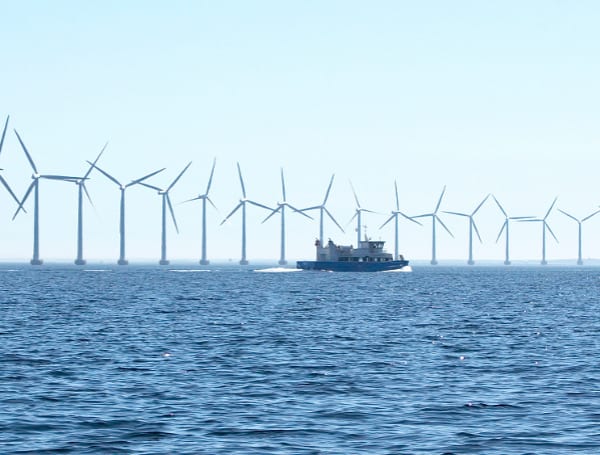Thomas Catenacci Low wind power generation is largely to blame for Europe’s ongoing energy crisis and scramble to import more fossil fuels,
Thomas Catenacci
Low wind power generation is largely to blame for Europe’s ongoing energy crisis and scramble to import more fossil fuels, according to a Reuters report.
Wind farms across Europe produced just 14% of their capacity from July-September compared to the previous average of 20-26%, market data from Refinitiv showed, according to Reuters. As a result, European energy providers have been forced to purchase more coal and natural gas which have skyrocketed in price as demand has increased.
“If we had high winds or just reasonable winds over that period, we wouldn’t have seen these price spikes,” Rory McCarthy, a senior analyst at the energy research firm Wood Mackenzie, told Reuters.
Germany, which boasts Europe’s largest wind power infrastructure, saw its total wind energy generation plummet 16% over the last 12 months, said Germany-based Fraunhofer Institute researcher Bruno Burger, according to Reuters.
Renewable energy accounted for 36% of primary energy production in the European Union in 2019, the most recent year with such data available. Renewables produce more energy in the EU than any other source and continue to take on a greater share of production.
Utilities continue to push for greater reliance on renewables, arguing that consumers will pay lower prices once solar and wind infrastructure is expanded.
“The more renewable energy we can build, the more electricity will come from those sources and the less coal and gas is needed for electricity production,” Christian Rynning-Toennesen, the chief executive of Norwegian utility Statkraft, told Reuters.
When wind projects are announced, companies and governments often share the total capacity, or maximum energy that could be produced from the wind farm on an annual basis. Both wind and solar projects typically produce a small fraction of that capacity.
Consumers across the continent have been hit with massive energy bills as wind has produced less energy and officials have turned to fossil fuels. On Wednesday, the European benchmark index for natural gas hit $194 per megawatt hour, near a record high.
Europe has also turned more to coal power over the last several months, Bloomberg reported. Overall, the price of emitting carbon to generate power has doubled since January.
The energy crisis has forced greater reliance on natural gas from Russia which critics accuse of tampering with much-needed natural gas flows for geopolitical reasons. Russian state-owned energy company Gazprom reportedly cut gas exports to Germany on Saturday and Sunday causing record price surges.
Check out Tampafp.com for Politics, Tampa Area Local News, Sports, and National Headlines. Support journalism by clicking here to our GoFundMe or sign up for our free newsletter by clicking here.
Android Users, Click Here To Download The Free Press App And Never Miss A Story. It’s Free And Coming To Apple Users Soon.

COMMENTS